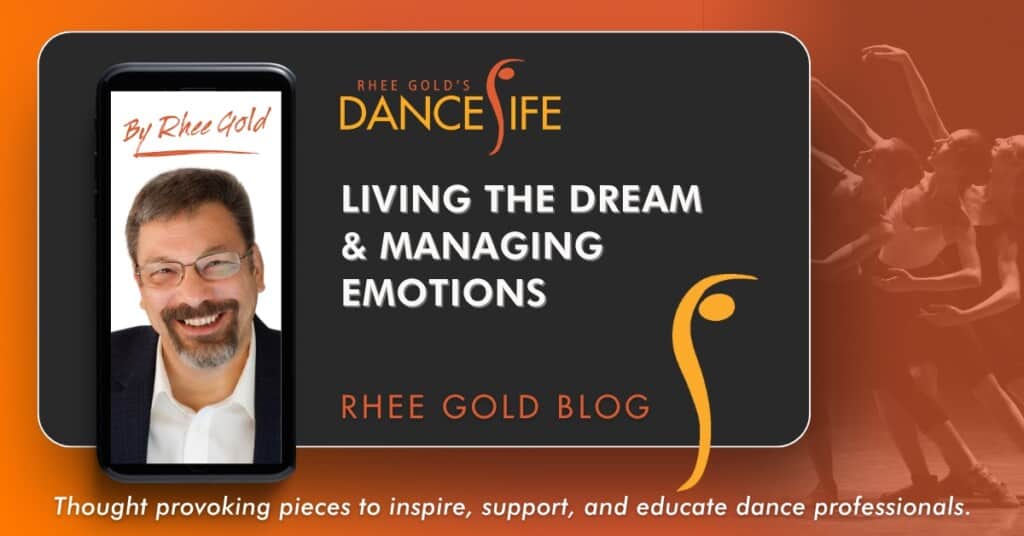Living the Dream and Managing Emotions

Growing up in a dance studio and evolving into a professional dancer, teacher, or studio owner means that dance has been a part of our essence for as long as we can remember. For many of us, this isn't just a career—it's a dream come true. However, living this dream comes with its challenges, particularly when it comes to separating our emotions from our professional roles.
In the world of dance, where passion runs deep, our identities are often connected with our craft. This deep emotional investment fuels our dedication but can also make us highly sensitive to criticism. When a parent questions a studio policy or a placement decision, it can feel like a personal attack, triggering a defensive response. After all, we've poured our hearts and souls into perfecting our art.
This reaction is especially common among dance teachers and studio owners. It's natural to want to protect our work and decisions, considering the personal investment involved. But managing these situations effectively is crucial for maintaining professionalism and positive relationships.
Often, parents ask questions from a place of genuine curiosity or concern, not criticism. They may be new to the dance world and are simply seeking understanding. Recognizing this can shift our perspective from feeling attacked to appreciating an opportunity to educate and inform. Being confident in our philosophy for dance education allows us to respond openly, inviting further questions and demonstrating our openness to dialogue.
Also, the feedback we receive, even when it seems critical, can be invaluable. It provides insights that might not have been considered, offering us a chance to refine our approach and enhance our studio or classroom environment.
Embracing this mindset requires a shift from viewing feedback as personal criticism to seeing it as a constructive part of our professional growth. By fostering an environment where questions are welcomed and addressed thoughtfully, we strengthen our studio community and the educational experience we provide.
The key to managing our emotions in dance education lies in understanding the nature of the feedback, communicating effectively, and continuously striving to improve. This approach not only helps us maintain our professional integrity but also enriches our interactions and the overall culture of our studios. Let’s continue to embrace our passion, use it to fuel our growth, and remember that every question or concern is a step towards enhancing our legacy in the dance community. Have an awesome day and enjoy the journey—Rhee
Rhee Gold, a veteran in the field of dance education, has dedicated over five decades to this art form. As the child of a dance teacher and studio owner, his passion for dance ignited early. Over the years, he has contributed significantly to the dance community through his roles as an author, speaker, and entrepreneur. Notable accomplishments include publishing Dance Studio Life magazine and writing influential columns. Rhee Gold's experience and insights have made him a trusted figure for dance teachers, studio owners, and enthusiasts worldwide, emphasizing the profound impact of dance education.








